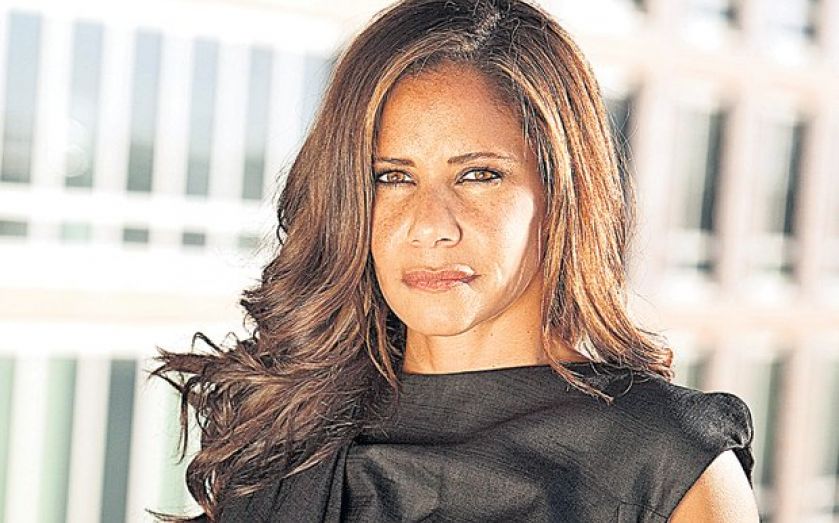Playing the long game

In 1997, Pokeware co-founder Maryse Liburdi was convinced her idea had potential. It took over a decade for the world to catch up. She tells Annabel Palmer why perseverance is the key to success
IT WAS the nineties – a time when VCRs were present in most living rooms and pager sales were booming – when Maryse Liburdi saw a dress on a character in her favourite TV show and mused, “How cool would it be if I could poke on it and get more information?”. Over 17 years later, her business Pokeware enables consumers to do precisely that.
Pokeware is a software firm that works like an online search engine: if you’re watching video content (but accessing it from a tablet or mobile device), and you spot something you want to learn more about, you poke the screen for more information or the opportunity to transact. Consumers are fans because it enables them to connect with what they’re looking for in real time. Advertisers like it because it operates on a pay-per click model.
THE WAITING GAME
When Liburdi started, however, it was the era of the dial-up. Yet she was convinced that at some point there would be faster connections. “The dotcom bubble? It wasn’t a direct result of too much investment in the internet or internet companies. I just think it was too early. There were only 500m people online; today there at 5bn.”
Fortunately, the New York-born entrepreneur had a meeting of minds with an unlikely investor – sports agent David Falk (whose clients include basketball legend Michael Jordan) – who convinced her to keep plugging away. What compelled her to approach him? “He was responsible for putting a person in direct association with a product. I knew he would grasp the concept immediately.”
Today, it’s the marketers, not technology, who are struggling to keep up with consumer behaviour. Even media’s latest buzz-phrase “programmatic advertising” is outdated in Liburdi’s view. “Advertising that ties into the programme you’re watching [e.g. if you’re watching a football game, you’ll see ads for shin-pads] is linear. Watching a TV show and being shown a mobile phone commercial when I’m in a two-year contract with a competitor? That’s not smart advertising. But with Pokeware, you can get people watching a show who have entirely different interests. I might covet a pair of shoes; you might like the coffee table. Pokeware plugs into that.”
BUILDING A BRAND
Founding the business was Liburdi’s first real job after graduating, though she would “never advise anyone to do that. Today, it is commonplace for a college graduate to have a startup, but remember: many startups fail.” She initially bootstrapped the business with personal savings, before securing investment from high net worth individuals who “believed in the model. But we had intellectual property by the time we approached them. It wasn’t just an idea on a piece of paper – we had patents, we had technology that was working, and we were just waiting for things to catch up.”
Nonetheless, Pokeware encountered financial setbacks during the noughties. Liburdi had started signing contracts with production companies (including Fox Regency and Paramount). But they delayed execution of pokeable videos, struggling to find producers and directors willing to “sacrifice” the integrity of their projects. Liburdi realised she was going to have to “start another business just to support this one”. So she flew to Los Angeles, produced and scripted the videos herself, and sold her first project – a reality show – to MTV. “And once I’d sold it, I made it pokeable. It really wasn’t that difficult.”
Liburdi (with a helping hand from Fugees bandmember Pras) has since produced the world’s first interactive music video. It had 5m views – boosting Pokeware’s profile. But even then, in 2005, we were still in the early stages of broadband
In fact, it’s only been in the past two years that Pokeware has seen traction – coinciding with the development of better video compression capabilities, better bandwidth and the emergence of video at every point of consumption.
BIG AMBITION
Today, Pokeware has a $44m (£26.5m) turnover. It has partnered with brands including Gucci and Paypal, and Liburdi is now in talks for a partial acquisition from a “big technology company,” that she hopes will boost Pokeware’s market presence.
Despite having worked on one business for close to two decades, she wouldn’t rule out creating another. “I’m involved with incubator i/o Ventures, so I’m always looking at new ideas.” Rubbing shoulders with aspiring entrepreneurs, she is mindful of the “one big mistake” they often make: focusing solely on the idea and failing to pay attention to consumer behaviours. “But big businesses do this too. It explains why Kodak and Polaroid have struggled. If people aren’t buying cameras anymore, surely it makes sense to partner with a telecoms company?,” she says, matter-of-factly.
CV MARYSE LIBURDI
Company name: Pokeware
Founded: 1997
Number of staff: 81
Job title: Founder, chief executive and chairman
Age: 30-something
Born: New York
Lives: Hotel rooms mostly, because I travel so much
Studied: Biology and Computer Science at the University of South Carolina
Drinking: Cold water with lemon
Eating: Sushi
Reading: Guns, Germs and Steel, by Jared Diamond
Favourite Business Book: Hatching Twitter, by Nick Bilton
First ambition: To fly
Talents: Instrument flight rules-rated pilot and an avid marathon runner
Heroes: Nelson Mandela
Motto: “No” means “not right now”
Awards: None yet
Most likely to say: Let’s try it!
Least likely to say: It’s not possible